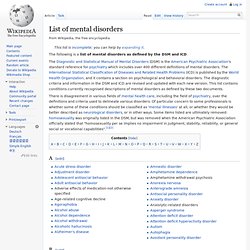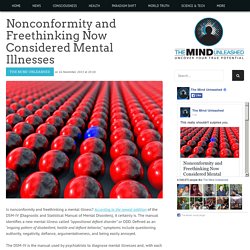

How to Stop Being an Over-Thinker - Stepcase Lifehack. As a rule, thinking is a good thing and while some people don’t do it enough, some over-think everything.

Both genders can fall into either category – today we’re going to chat about the one who does too much. Some people think themselves into stagnation, frustration, exhaustion, anxiety and even illness. They have an aptitude for making the simple, complex, the easy, hard, the minor issue, a major drama and the pain-less, pain-full. They are adept at snatching defeat from the jaws of victory and also at wasting their time and talent through age-old art of over-analysing everything and everyone; analysis paralysis. They are experts at misinterpreting what people are saying and if there is a way to have their feelings hurt, they’ll find it. So, if you identify with any of the above, then you probably inhabit the cerebral landscape somewhere between casual Over-Thinker and chronic Over-Thinker. 1. 2. 3. 4. 5. 6. 7. 8. 9. 10. This will make room for new, inspirational tenants. My Mental Studies.
Mental Health. DID/MPD.
Borderline personality disorder bpd. Index of free personality tests and intelligence tests. List of mental disorders. The following is a list of mental disorders as defined by the DSM and ICD.

The Diagnostic and Statistical Manual of Mental Disorders (DSM) is the American Psychiatric Association's standard reference for psychiatry which includes over 400 different definitions of mental disorders. The International Statistical Classification of Diseases and Related Health Problems (ICD) is published by the World Health Organization, and it contains a section on psychological and behavioral disorders. The diagnostic criteria and information in the DSM and ICD are revised and updated with each new version. This list contains conditions currently recognised descriptions of mental disorders as defined by these two documents. There is disagreement in various fields of mental health care, including the field of psychiatry, over the definitions and criteria used to delineate various disorders.
A[edit] B[edit] C[edit] The Indexed Phobia List. Liebowitz Social Anxiety Scale Test - SAS. Nonconformity and Freethinking Now Considered Mental Illnesses. Is nonconformity and freethinking a mental illness?

According to the newest addition of the DSM-IV (Diagnostic and Statistical Manual of Mental Disorders), it certainly is. The manual identifies a new mental illness called “oppositional defiant disorder” or ODD. Defined as an “ongoing pattern of disobedient, hostile and defiant behavior,” symptoms include questioning authority, negativity, defiance, argumentativeness, and being easily annoyed. The DSM-IV is the manual used by psychiatrists to diagnose mental illnesses and, with each new edition, there are scores of new mental illnesses. Are we becoming sicker? New mental illnesses identified by the DSM-IV include arrogance, narcissism, above-average creativity, cynicism, and antisocial behavior.
All of this is a symptom of our over-diagnosing and overmedicating culture. According to the DSM-IV, the diagnosis guidelines for identifying oppositional defiant disorder are for children, but adults can just as easily suffer from the disease. Are Genius and Madness Related? Contemporary Answers to an Ancient Question. Mental Disorders: The Facts Behind the Marketing Campaign. “There are no objective tests in psychiatry-no X-ray, laboratory, or exam finding that says definitively that someone does or does not have a mental disorder.”

“It’s bull—. I mean, you just can’t define it.” — Allen Frances, Psychiatrist and former DSM-IV Task Force Chairman Allen Frances, Psychiatrist and former DSM-IV Task Force Chairman “Virtually anyone at any given time can meet the criteria for bipolar disorder or ADHD. Anyone. And the problem is everyone diagnosed with even one of these ‘illnesses’ triggers the pill dispenser.” — Dr. Read more: Psychiatrists Admit Disorders Are Not Diseases Introduction: 120 million people worldwide have been diagnosed with mental disorders and placed on psychiatric drugs as ‘treatment.’ 1) There are no medical or scientific tests that can prove mental disorders are medical conditions. Read More >> 3) Why safe effective medical treatments to mental difficulties are kept buried.
Read More >> 5) What are psychiatric labels?